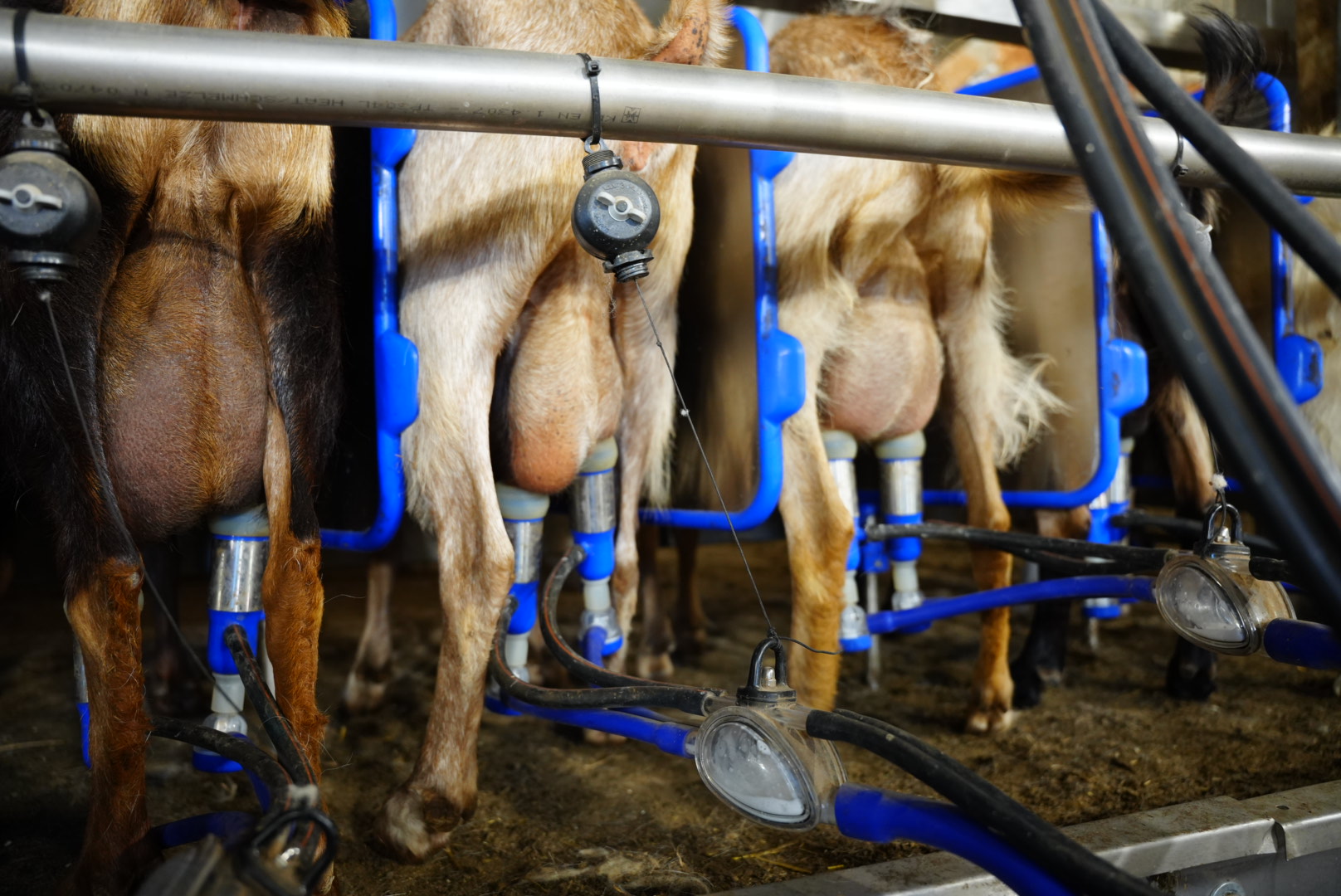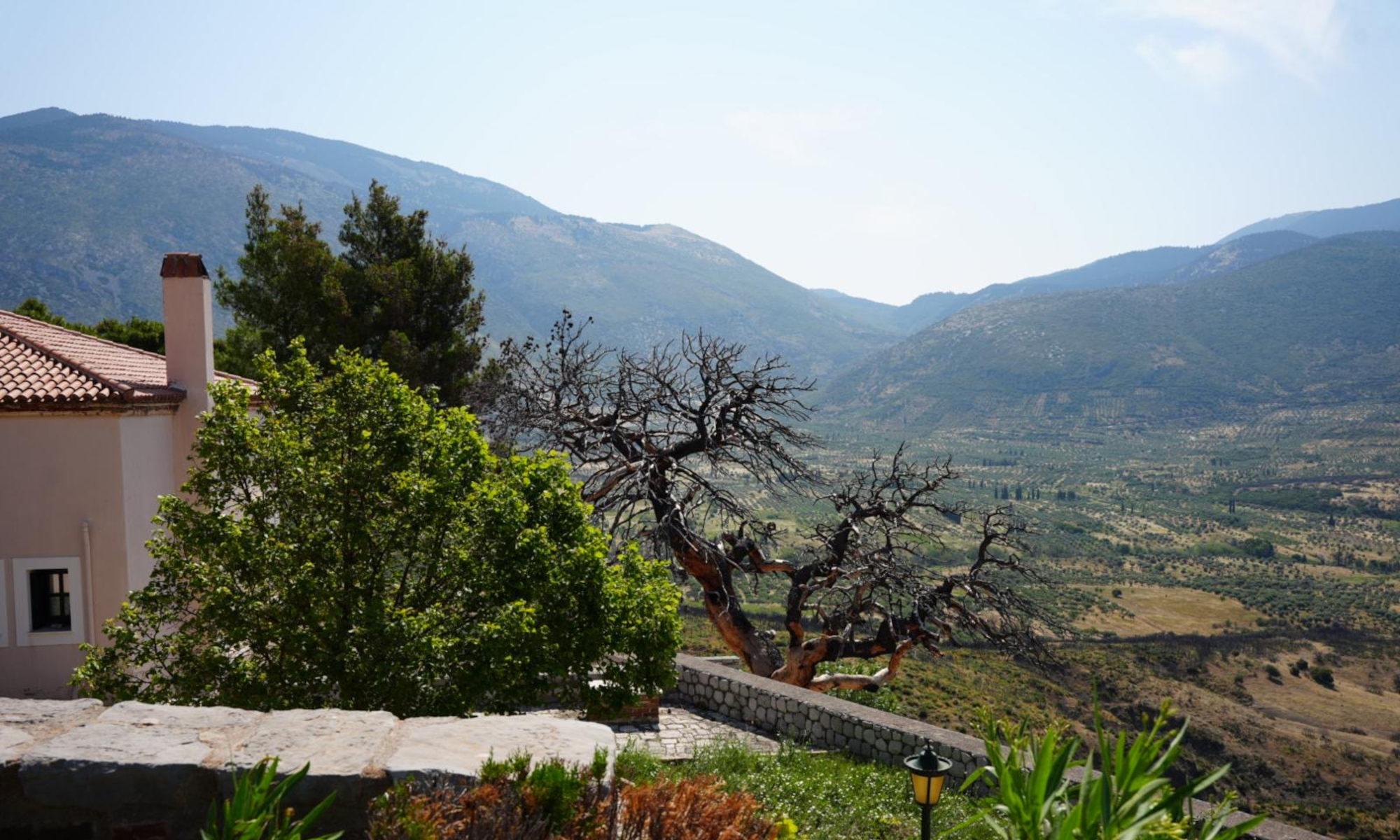by Maggie Stewart
In February 2023, cheesemaker Katerina Moschou was helping her goat give birth. Six months earlier, she had given birth to her own daughter, now she was listening to the labored bleats of her goat alongside the rumble of trucks rolling in to lay concrete nearby. Moschou said, “It was a construction orgasm going on next door.” As she recounted her tale, however, her humor faded, “Is there space for me here,” she wondered, “or am I eventually going to be chased away?” Moschou, 42, is one of the many small-scale farmers throughout the Cyclades who fear for their livelihoods due to the threats posed by overtourism and climate change.
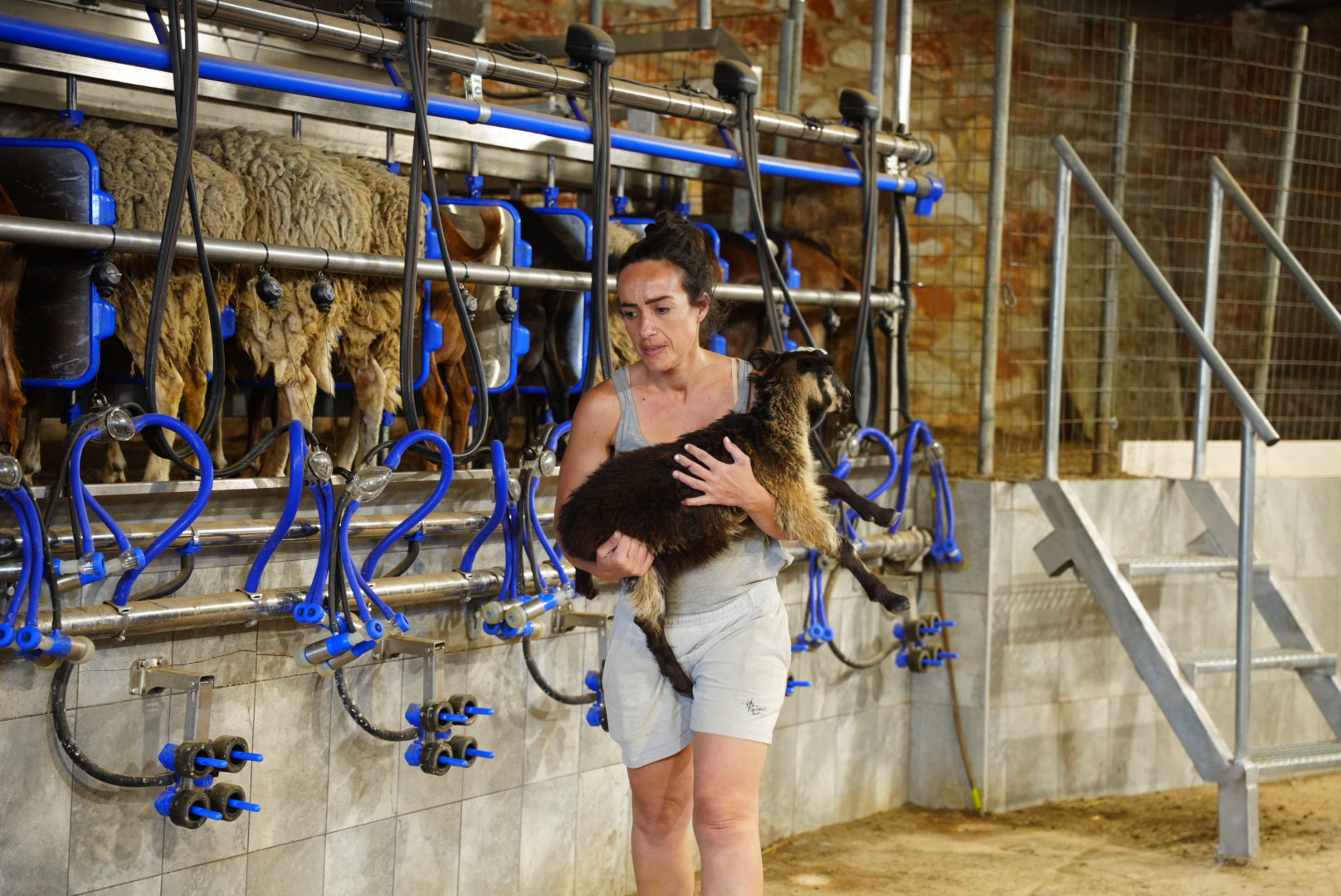
On the rocky hills of the island of Paros, Moschou spoke with me, wearing all pink, down to her rubber Birkenstocks. With 63 sheep and 203 goats, caring for the farm is an intense job. Mornings on the farm start at 8 a.m. after taking care of her daughter, and consist of two rounds of milking and other chores that often last until 11 p.m. But Moschou says, “It doesn’t feel like work.” She remembers summers spent with her grandmother on their farm, where her love of caring for animals and cheesemaking began. As I kissed the soft fur of one of her newborn goats and watched baby chicks following closely behind their mother on Moschou’s farm, I could easily see why. Cats lounge in the sun against the backdrop of blue ocean water as goats climb the rocky hillside; a scene disrupted by the villas below.
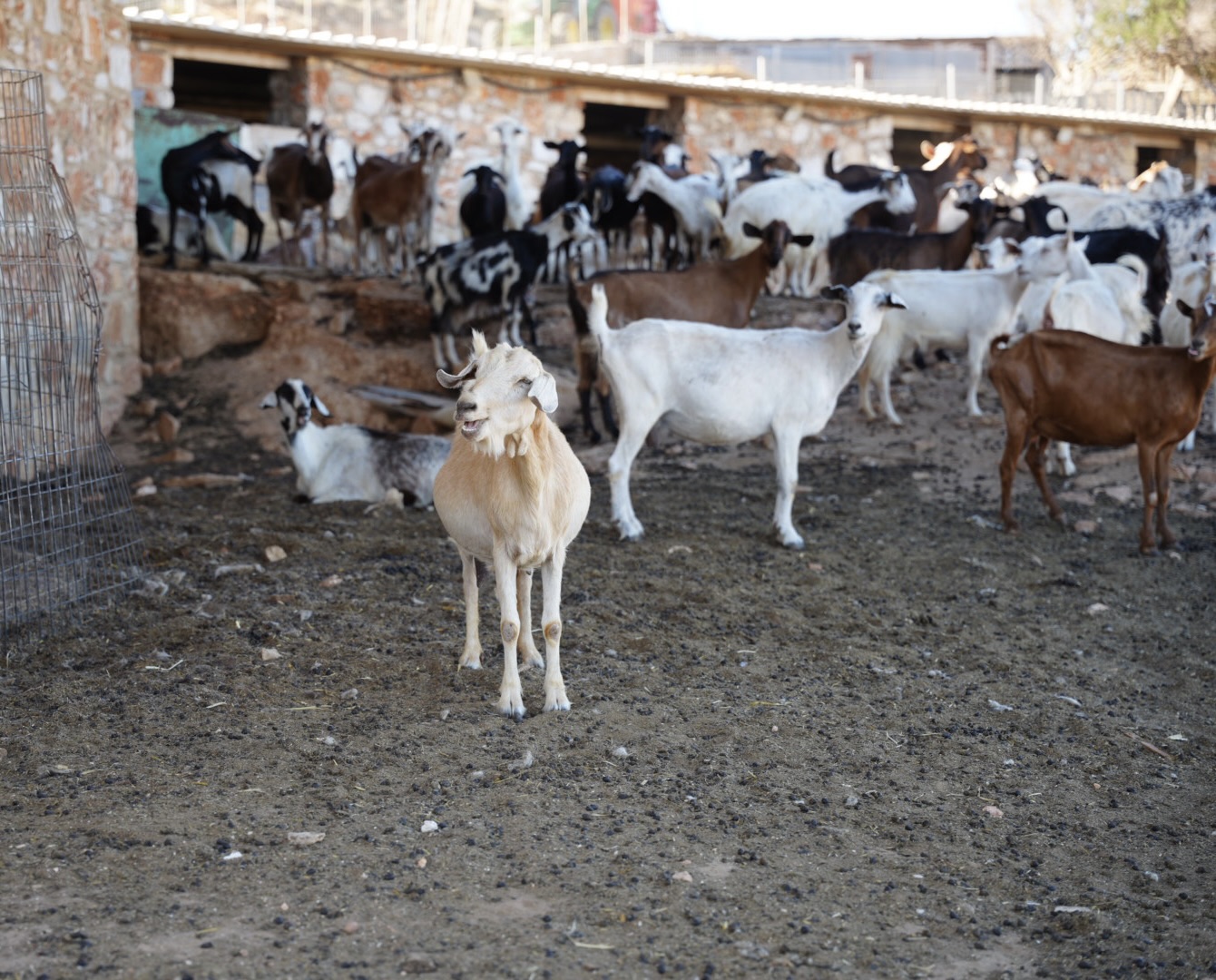
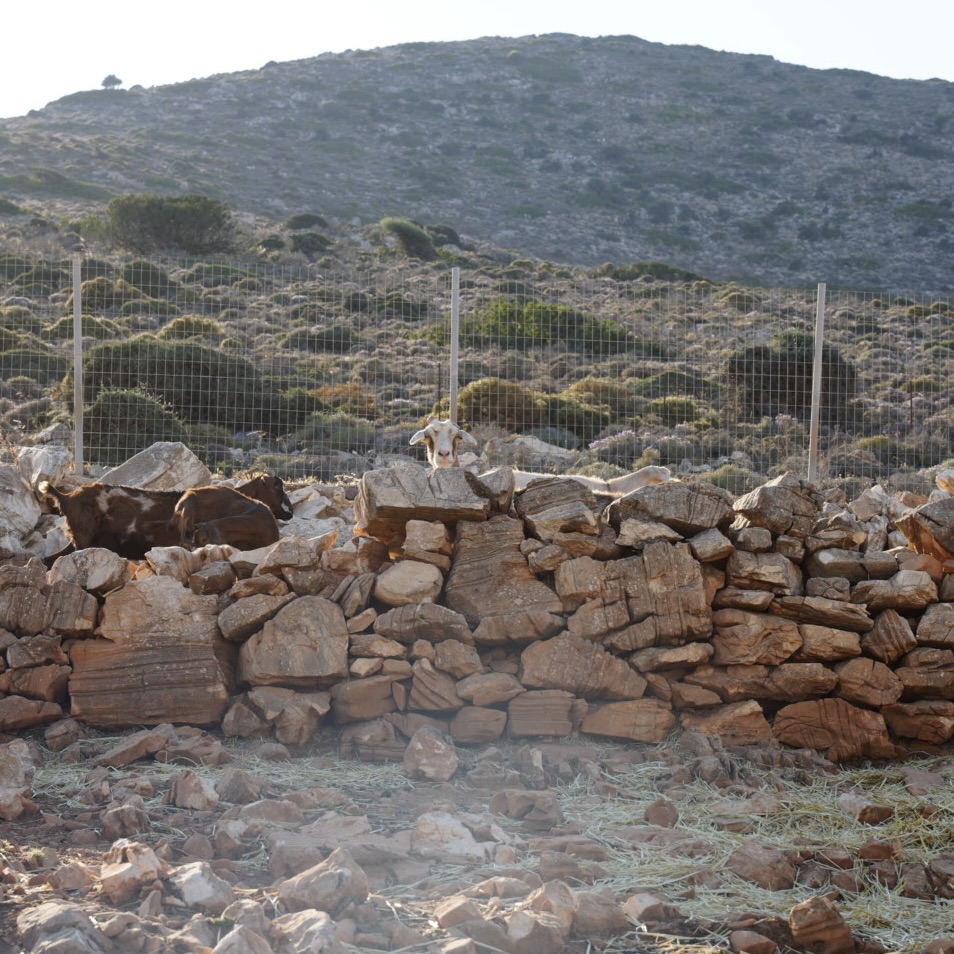
In the eight years Moschou has operated her farm, development on the island has exploded. “It was so sudden and so big, everything started being constructed all around,” she said. According to Moschou, nearby owners have harassed her over the smells and sounds coming from the farm.
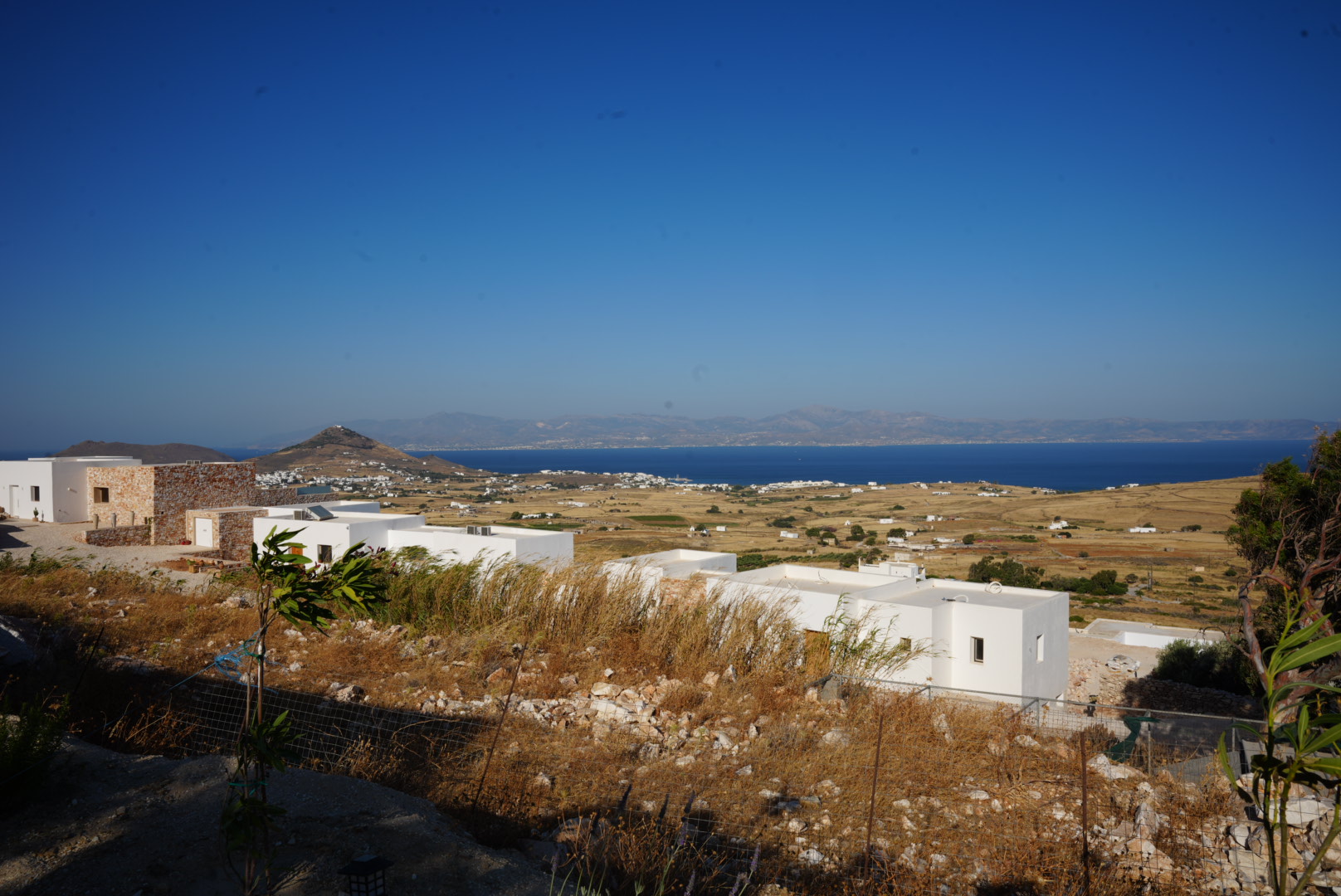
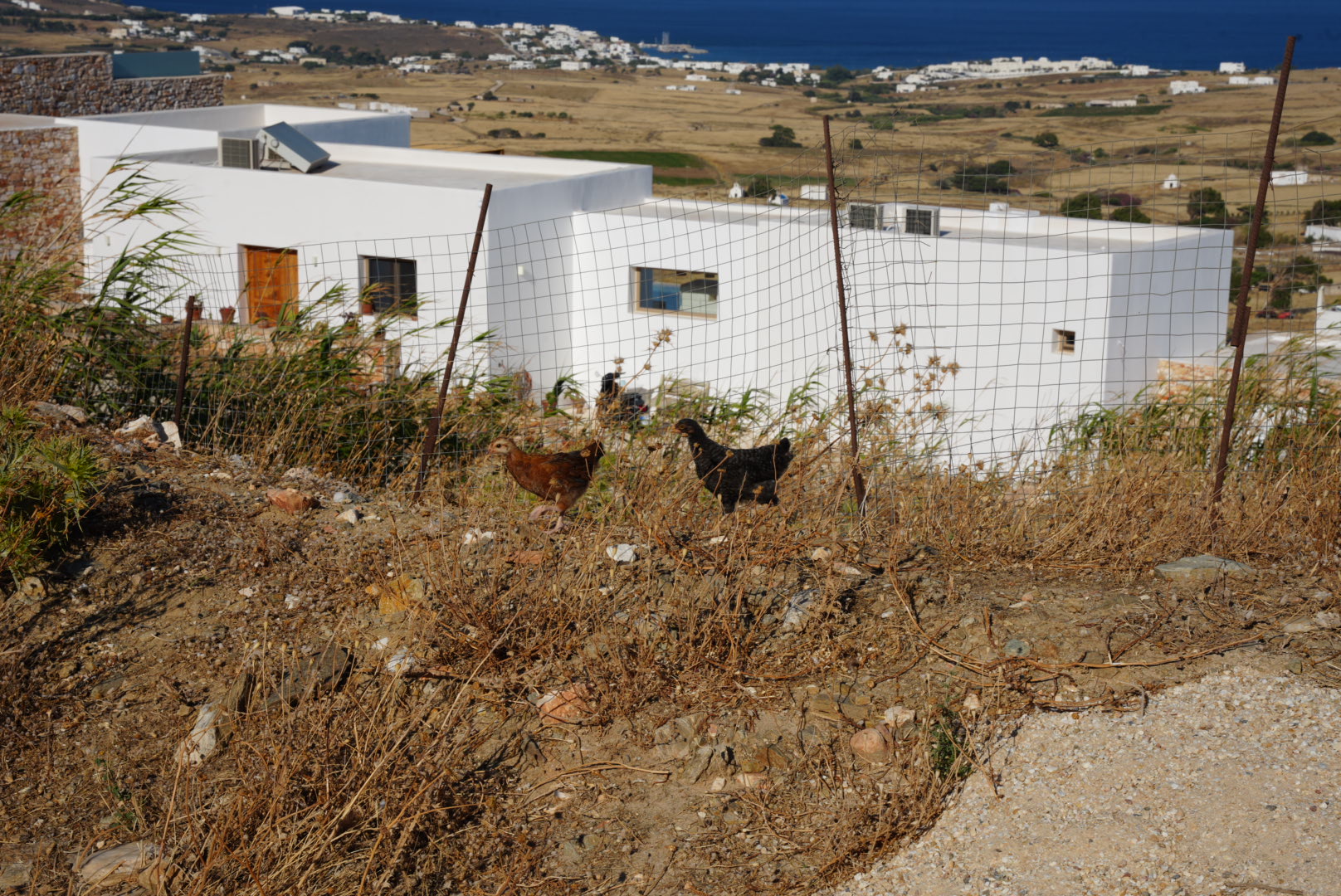
This tension mirrors a broader crisis of overtourism in the Cycladic islands, including Paros, which is home to approximately 14,000 permanent residents, but sees 32 times that number arrive during the summer months. In 2024, Paros issued the most building permits in the Cyclades. Giorgios Lialios, chief reporter on overdevelopment at eKathimerini, explained one of the reasons that development is so damaging in Greece is because, “In Greece, under certain circumstances, you can build pretty much everywhere,” leaving farmland especially vulnerable.
The rise of tourism has put pressure on the island’s water, land, and culture. “Sun and sea tourists,” as Nicolas Stephanou of Save Paros calls them, often overlook the lives and traditions of locals. One of these traditions being ignored is Cycladic cheesemaking, a centuries-long practice that Moschou inherited from her grandmother. In 2024, it was recognized as a part of Greece’s intangible heritage, but recognition does not guarantee survival.
Moschou, who studied agronomy, explained that the Cycladic climate, characterized by dryness and an abundance of herbs, contributes to the cheese’s distinct, rich taste. The goats and sheep adapted to the environment produce less milk, but offer greater flavor.
At around 6 p.m., she began her hour-and-a-half milking routine, changing her clothes from pink to grey. In Moschou’s stable, silver and blue milking machines await her animals, who have been trained to line up in the chutes. As she works, she discusses the challenges of farming in the changing climate. To deal with rising temperatures, she has extended shade over her barn, but even that hasn’t been enough for her sheep, which she plans to sell due to their sensitivity and complicated herd dynamics. But it is not all negative. She has switched from feeding her animals with water-intensive clover to Parian barley. “Barley is a win-win,” she said. “It’s cheaper. It requires less water, and even though it makes the goats produce less milk, it’s more tasty.”
Moschou’s farm is a living example of perseverance in the face of climate change and overdevelopment. Farming is essential not only to keeping culture alive but also for the longevity of the island. “We cannot only rely on tourism,” said Paros’ Mayor Kostas Bizas, “It comes and it goes.” Paros must be prepared for when the next island goes viral or climate change worsens, and to survive, it will depend on people like Moschou, who know and love the land.
